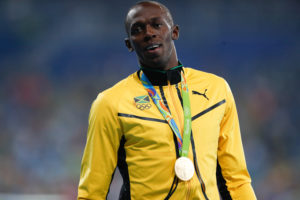“The Jamaican team is disqualified…the corresponding medals, medalist pins and diplomas are withdrawn and shall be returned.” – International Olympic Committee (IOC)
As reported by ESPN, the IOC released a statement on January 25th, 2017 that Nesta Carter, one of Usain Bolt’s 4×100 relay teammates, tested positive for the banned stimulant methylhexaneamine in a re-analysis of samples from the 2008 Summer Beijing Olympics. As a result, the IOC has effectively stripped Bolt and his teammates of their relay gold medal.
In a disciplinary hearing held on October 17, 2016, Carter gave testimony that he was taking supplements in 2008, but had been tested several times prior to the Beijing Olympics and had never tested positive for any prohibited substances. Carter and his teammates seem to have been completely blindsided by the investigation and the ruling itself, which has come over 8 years after the alleged violation.
It is now Carter’s decision if he wants to appeal the IOC’s ruling to the Court of Arbitration for Sports (CAS), the international quasi-judicial body established to settle disputes related to sports through arbitration. Though it is undeniable that Carter’s 2008 samples did test positive for methylhexaneamine, the issue on appeal would likely involve the fact that methylhexaneamine was not a banned substance in 2008. The IOC, however, maintains that the drug, “fell within the scope of the general prohibition of stimulants having a similar chemical structure or similar biological effect as the listed [banned] stimulants,” and they believe that if an appeal were sought, the CAS would confirm their ruling. If Carter declines to appeal, his world-famous teammate and reigning fastest man in the world, Usain Bolt, will have “only” eight Gold Medals to his name, rather than nine.
Nick Aquart is a Sports Highlight Contributor for the Harvard Journal of Sports and Entertainment Law and a current first year student at Harvard Law School (Class of 2019).

